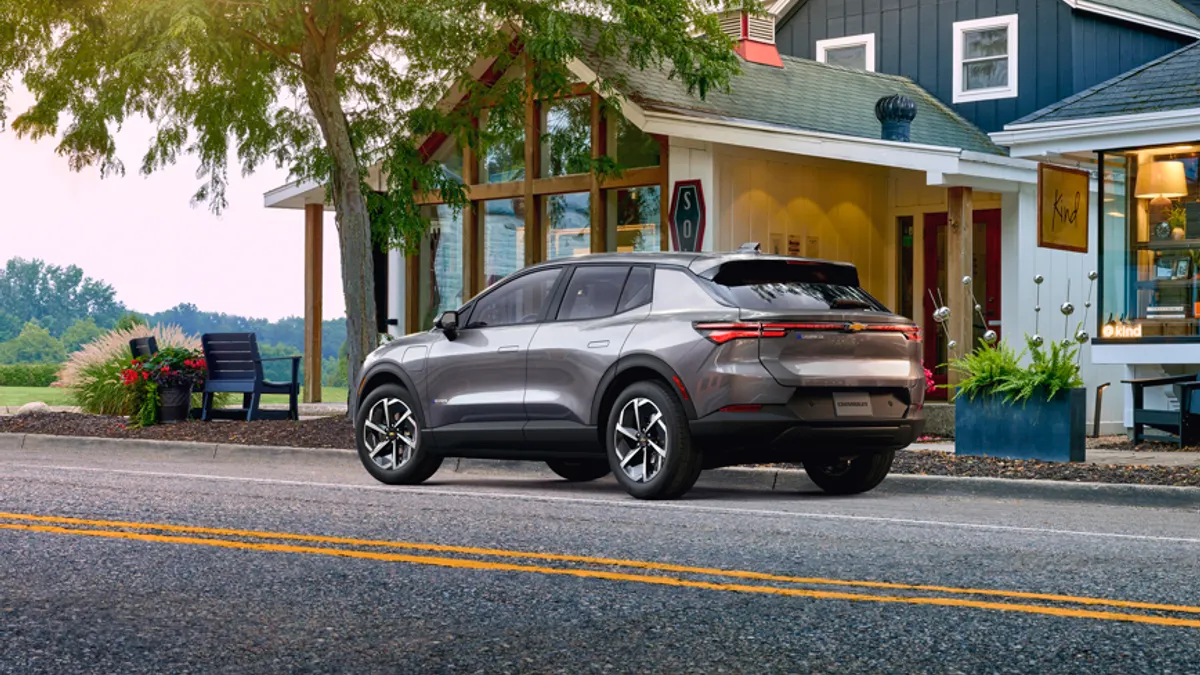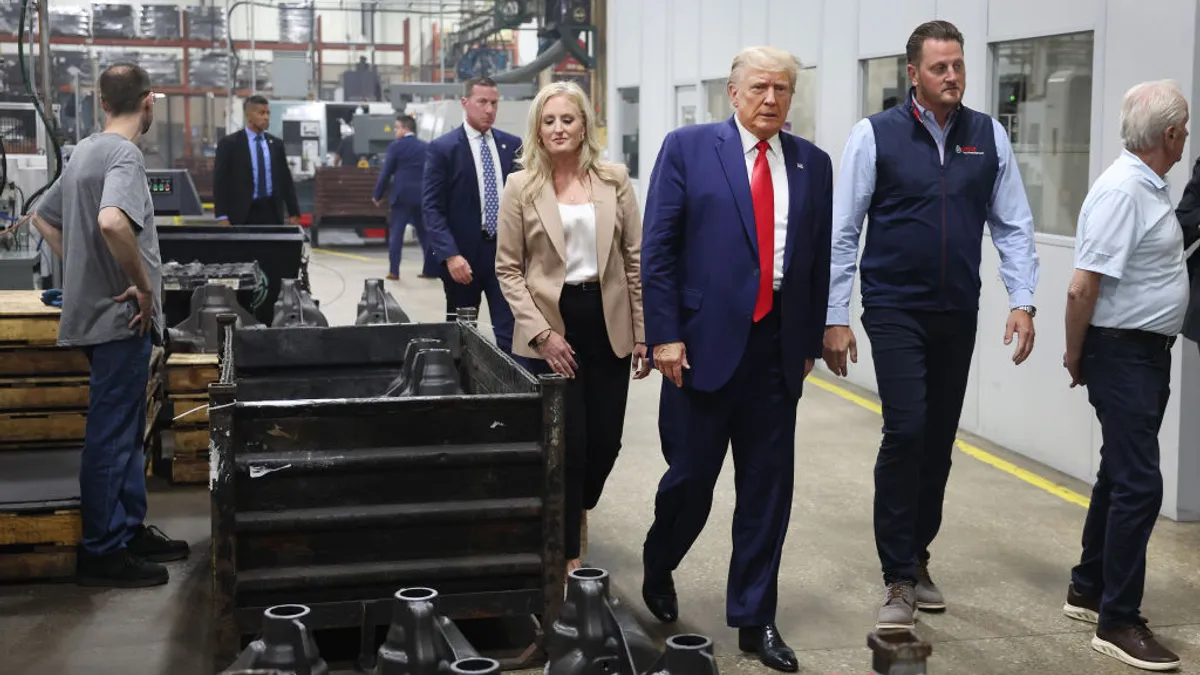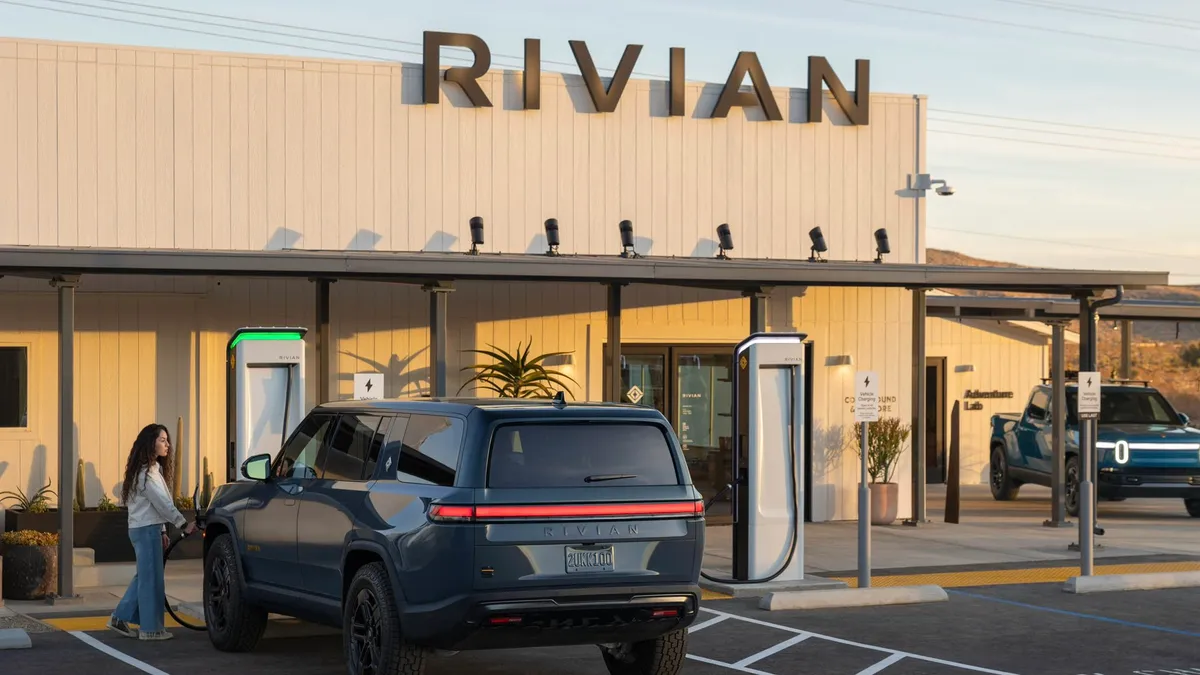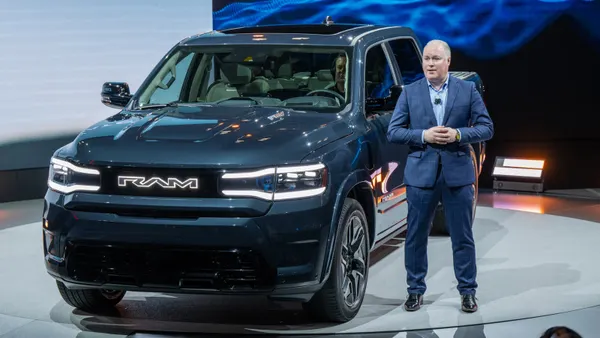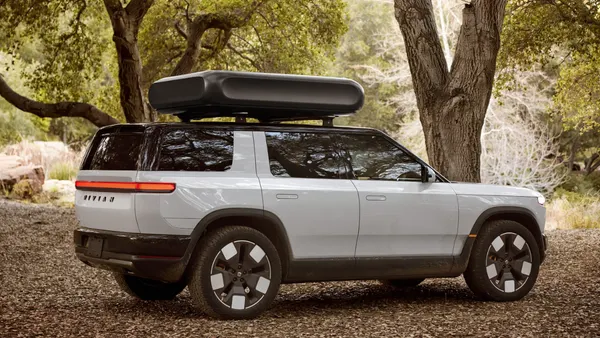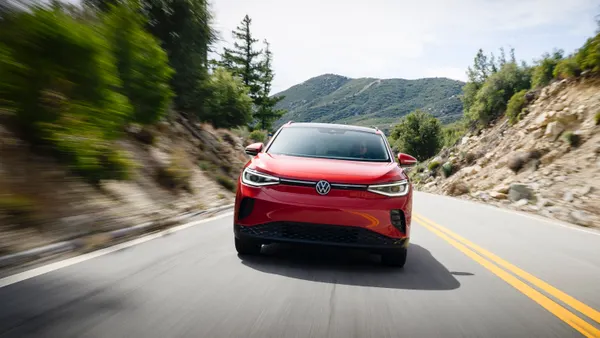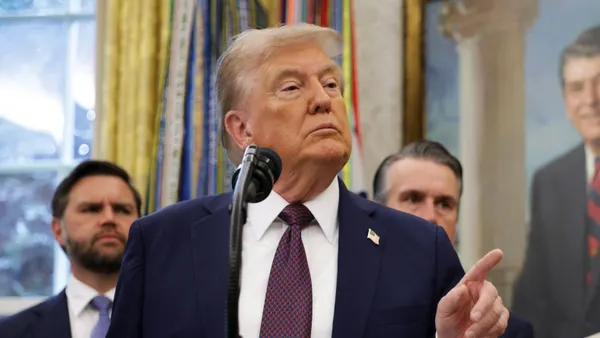Tariffs cost General Motors $1.1 billion in the second quarter, sending profits skidding by 32% from Q2 2024, the company reported on Tuesday. The automaker says tariffs imposed by the White House on imported vehicles and parts this year will continue to hit profits the rest of the year to the tune of $4 billion-$5 billion total.
GM says it will try to offset 30% of those taxes this year with cost cutting.
Even with the headwinds of tariffs, GM beat Wall Street estimates by netting $2.53 per share, down from $3.06 a year ago, but better than the $2.44 average forecast by analysts as reported by LSEG.
GM’s sales in the U.S. rose 7% in the April-June period versus like-2024 as the automaker continues to do well with pickup trucks and SUVs. GM squeezed out a small profit in China in the quarter after losing money last year and taking a $5 billion restructuring charge.
The top U.S.-based automaker by volume is taking steps to reshore some production to the U.S. to cope with Trump Administration tariffs, announcing plans last month to spend $4 billion at plants in Kansas, Michigan and Tennessee to add production of 300,000 vehicles in the U.S. Some of the vehicles currently are being assembled in Canada and Mexico. GM says it will take 18 months to ramp up the new production capacity.
Automakers and suppliers have moved some production to Canada and Mexico over the past three decades based on what was allowed by the North American Free Trade Agreement (NAFTA) signed into law by President Clinton and the United States-Mexico-Canada Agreement (USMCA) signed into law by President Trump in his first term.
Trump, however, has been levying tariffs on imported goods from those countries, including automobiles and auto parts, utilizing the Emergency Powers Act, stating that he is trying to reduce trade deficits while an “emergency” exists at both borders because of illegal crossings and fentanyl smuggling.
“We are positioning the business for a profitable, long-term future as we adapt to new trade and tax policies and a rapidly evolving tech landscape,” GM CEO Mary Barra wrote in a letter to shareholders in advance of the automaker’s Q2 2025 earnings release.
GM is enacting a reset of its production and product planning based on tariffs and Trump’s other policies regarding battery-electric vehicles (BEVs) and emissions regulations. The budget bill just passed in early July ends the $7,500 federal tax credit for new BEVs meeting criteria for U.S. content and assembly Sept. 30. Trump also signed tax and budget legislation ending fines for not meeting Corporate Average Fuel Economy (CAFE) rules, a measure intended to allow automakers to produce as many internal-combustion-engine (ICE) vehicles as they want.
GM says its BEV sales rose by more than 100% in the quarter and Cadillac surpassed Tesla in premium/luxury-priced BEVs, with the brand holding the top market share in premium BEVs. Helped by BEV sales surging with new products, and customer anticipation of the BEV tax credits ending, GM U.S. sales in the first half of 2025 were up 12%, leading all automakers in the period in both total and retail sales.
Even with rollbacks in BEVs and fuel economy penalties, Barra says she is sticking with a strategy based on the belief that BEVs remain the future of mobility. “Despite slower EV industry growth, we believe the long-term future is profitable electric vehicle production, and this continues to be our north star,” the CEO wrote in the shareholder letter. “As we adjust to changing demand, we will prioritize our customers, brands, and a flexible manufacturing footprint, and leverage our domestic battery investments and other profit-improvement plans.”


